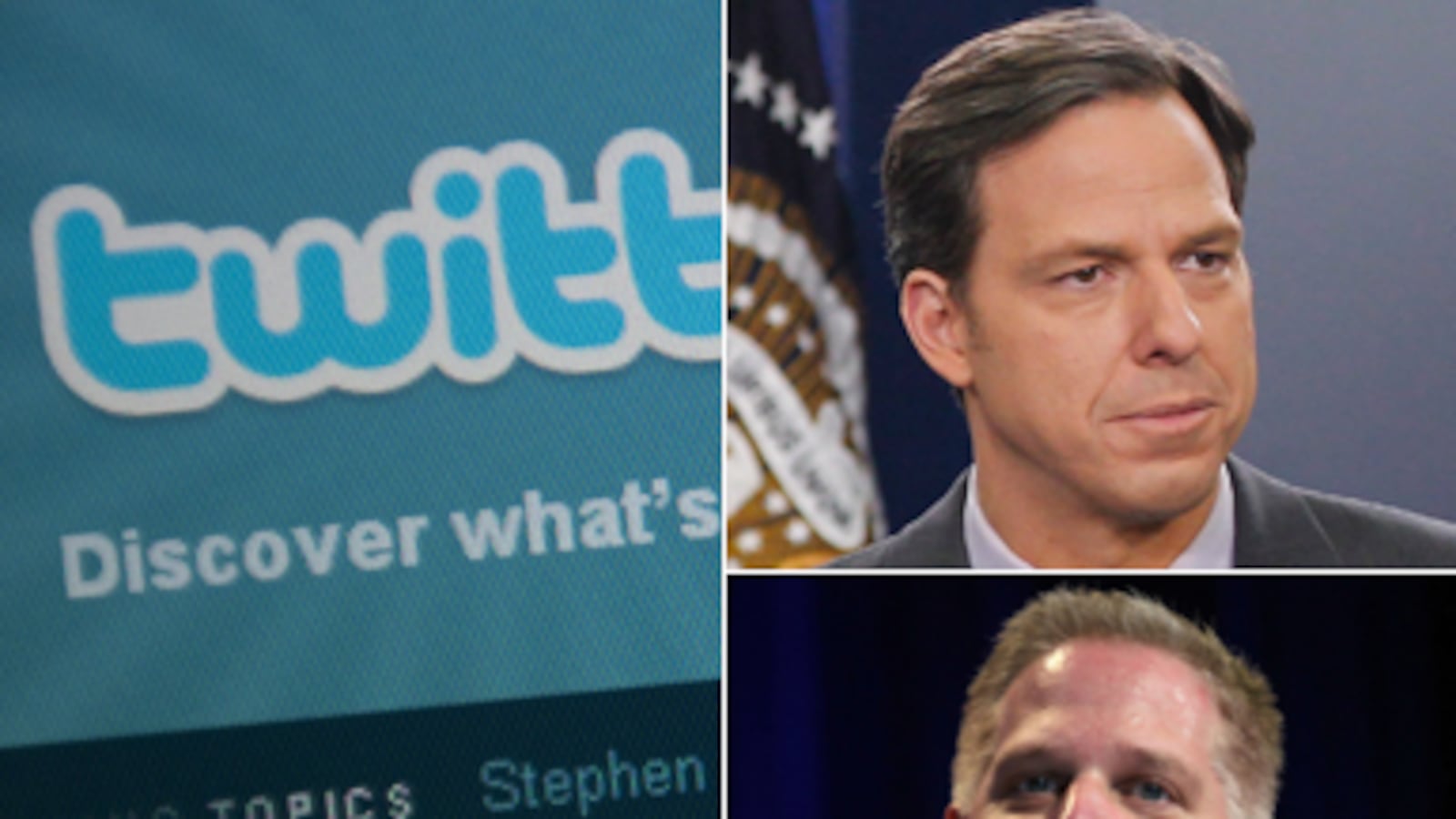Ever since reporters started using Twitter, an old guard of newspaper hands has complained that the micro-blogging site is undermining the art of journalism, 140 characters at a time. But Twitter is actually more of a threat to a particular strain of journalism, a mostly noble one: press criticism. On Twitter, every journalist is a press critic. This may sound like a good thing: Journalism, more than most institutions, would seem to benefit from self-scrutiny. But, trust me, it isn’t. Twitter opens a window into journalists’ minds and, often times, the view ain’t pretty.
Take one example from last week: ABC White House correspondent Jake Tapper’s near meltdown last week over the Twitter meme #nprgoesnazi. Taking Fox News chief Roger Ailes’ comment to The Daily Beast’s Howard Kurtz that NPR is run by “Nazis", Twitter users began re-imagining NPR’s programming for Das Fuhrer: “This American Life” became “This American Reich,” etc. When jokes started veering towards the Holocaust, Tapper was quick to wag his finger, as might seem appropriate. But note his method: First, he tweeted, “Going off twitter. Let me know when the liberals joking about the Holocaust (in response to Ailes' comments) stop.” After a 24-minute sabbatical, Tapper returned to say he was equally offended when Glenn Beck mentioned the Holocaust and announced, “i dont have a different standard for people who trivialize the Holocaust based on their politics.”
By attacking both liberals and Beck, and then announcing his own lack of a double standard, Tapper used his purported offense at the joke as an excuse to trumpet his own objectivity and high standards. Such self-promotion is the yeast that makes Twitter press criticism rise. Journalists attack other publications in ways meant to emphasize their own superiority to the thing they mock; they type with one hand and hold their noses with the other.
Slate’s Dave Weigel, who was once one of the lead reporters covering birther-queen Orly Taitz, now regularly uses Twitter to snark at journalists who cover fringe politicians. “Haha, that stupid guy is still stupid! Let’s hit him with rocks,” he wrote after Politico ran an article about Alvin Greene’s presidential ambitions. When Sarah Palin misidentified one of her own endorsees, National Journal’s Marc Ambinder had his cake and ate it too by tweeting, “Hey media--shiny Sarah Palin mini-gaffe--go wild!” with, of course, a link to Palin’s error. Ambinder went on to berate other reporters who covered Palin’s mistake, explaining he only mentioned it in the first place because “I just want to see how quickly everyone becomes obsessed with a typo.” (In Ambinder’s case, the answer was mere seconds.)
Such half-baked media criticism is so rampant on Twitter that it’s already developed its own clichés. A concerned comedian might want to sit down the Washington press corps and explain that it’s not funny to tweet the word “BREAKING” followed by a link to or summary of an article whose content the tweeting journalist finds obvious. (For example, Talking Points Memo’s Josh Marshall: “BREAKING: Odds are election results will be broadly in line with poll consensus.”) The Awl’s Choire Sicha recently named and described the “ hate retweet,” in which a journalist simply retweets without comment something he finds laughable; the gesture drips with scorn.
Journalists type away on Twitter with one hand and hold their noses with the other.

Press criticism, of course, is a good thing and keeps everyone on their toes. Still, there’s something about Twitter—maybe its the faux-intimacy it intimates through real-time conversations, and the instigating legions of like-minded followers (or, even better, antagonistic competitors)—that, as Sicha writes, “is literally designed to bring out the worst in people.” The worst in people, when it comes to many writers, appears to be an insecurity about their own standing in the journalistic firmament and a consequential complex that attempts to camouflage this insecurity with mockery and snark. BREAKING: Journalists have been and will always be vicious gossips. But on Twitter, everyone tastes their sour grapes.
Ben Crair is the Deputy News Editor of The Daily Beast.





